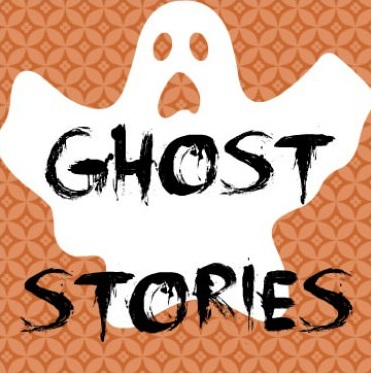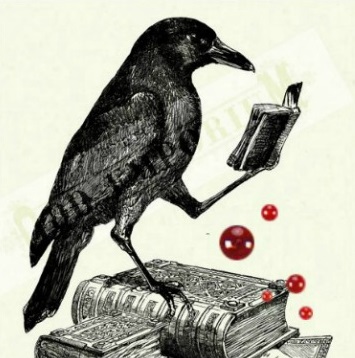So, on the plus side, despite serious RL interventions progress on my card is well under way, with four squares (including the centre / free / raven square) marked "called and read"; three of these in a row -- plus reading for the remaining two squares of that row also in progress -- and several more options in place to go for a bingo, depending how the next couple of calls come out.
On the downside, I seriously hope my book selections are going to improve. Except for Priscilla Royal's Wine of Violence, which delivered all that I had hoped from it and then some, most of the first bingo week's books fell well short of my expectations. It's not that they were awful (with one significant exception), but they could have been so much more, and that's obviously what I'd been hoping for. I hope with yesterday's spontaneous revisit of Agatha Christie's Regatta Mystery and Other Stories and the book I started (also yesterday) for the Gothic square, Peter Ackroyd's Hawksmoor, I've finally turned that corner. (Ditto my planned read for today's call, Black Cat -- Jim Butcher's The Aeronaut's Windlass.)
Still, apologies if the tone of some of the below should rub anybody the wrong way -- I'm moderately miffed with my bingo books so far.
N.B.: Below I am, with one exception, using the relevant audiobook covers, as with most of these books I either went back and forth between the print and the audiobook version or I listened to the audiobook throughout (even though I do also own the print version).
The Books


James Hilton: Was it Murder?

My 2019 pre-bingo read and actually a fairly decent start into the game. And yes, this is "the" James Hilton of Goodbye Mr. Chips and Lost Horizon -- actually, in a number of ways this book was probably Hilton's dry run for Goodbye Mr. Chips.
Hilton's protagonist jokingly describes writing a novel a young Oxbridge graduate's rite of passage, and that may very well have been what was at work with Hilton himself here, too, tapping into the interwar period's craze for mysteries to boot. It's a good thing he eventually decided to leave the "mystery" bit behind -- but what really does stand out in this book is the very well-crafted public school atmosphere.
(For those who are interested, this book was originally published under the pseudonym Glen Trevor, and later also republished with the somewhat spoilery title Murder at School.)


Nina Blazon: Siebengeschichten

A collection of short stories featuring ghosts and other supernatural elements, set in places ranging from Ireland, England and the U.S. to Sweden, Iceland, France and Japan. (Perhaps a minor point, but why not also in the author's own Germany and Slovenia? Indeed, in some -- though not all -- of the stories the choice of the setting feels entirely random.)
The title literally translates as "Sevenstories" and turns out to be merely a fancy way of saying "this is a collection of seven stories"; it's not an allusion to any particular feature of the book. Based on the fact that the entry that's obviously intended as a tribute to Oscar Wilde's Picture of Dorian Gray manages to get the core element of Wilde's novel only halfway right I'm not wholly confident about the author's research into the supernatural elements from other cultures she uses and with which I am less familiar (especially those from Japanese mythology and folklore), but that aside, I've spent a few moderately entertaining hours with this book. The two standout entries are probably a fairly well-crafted Stephen King-type "Christmas horror" story and a tribute to the Icelandic troll folklore; followed by a story (randomly set in France) playing on mirrors and on the question what is real and what is perception. By and large, though, it's not a major loss to the non-German speaking public that so far this collection doesn't seem to have been translated into English.


Ellen Datlow & Terri Windling (eds.); Various Authors: A Wolf at the Door and Other Retold Fairy Tales

Considering that according to the preface the authors of this collection are supposed to be exploring "the dark side" of fairy tales, most of the stories here come across as unexpectedly light and fluffy. Maybe this is due to the fact that I actually grew up with the real thing -- the Grimm Brothers', Hans Christian Andersen's, Charles Perrault's and Wilhelm Hauff's original tales, instead of their Disney versions (which the authors of this collection's preface blame for the modern-day bowdlerization of fairy tales and our perception of them) -- but even today I find those original tales decidedly scarier (and also more interesting) than most of the stories in this collection, even if I do credit the authors' frequently original approach in giving them a contemporary context. If it hadn't been for the Garth Nix's Hansel's Eyes and Patricia McKillip's update on The Twelve Dancing Princesses, both of which are truly superb (and do deliver on the "dark side" premise -- in spades), this would have been a three-star read for me at most.


Priscilla Royal: Wine of Violence

The first book of Priscilla Royal's longstanding medieval mystery series focusing on Eleanor, Prioress of (fictional) Tyndall Priory in Norfolk.
This is a series I've long wanted to start and that I had penciled in as a "definite" for this year's bingo. In fact, by the time I began reading this book, I had already started Zen Cho's dismal Sorcerer to the Crown (see below), and coming after two so-so short story collections and looking at a book (in Sorcerer to the Crown) that I'd definitely have DNF'd if it hadn't been for Halloween Bingo, I decided a change of pace was more than called for.
As I was / am new to the series, of course I didn't know for sure this was going to be the book that would deliver the goods, but I'd seen and heard enough about it to be reasonably confident, and Ms. Royal essentially won me over with her preface, where she sets out her approach -- as well as the series's real life background -- and which shows just how much research she'd put into it. And after the first couple of chapters I knew for sure I'd hit on a winner: The period atmosphere is finely crafted, the characters are fully rounded and believable (even if Eleanor -- period allowances notwithstanding -- sometimes comes across as a bit too worldly-wise for her age), and the mystery plotting is solid, never mind that it did peter out a bit towards the obvious towards the end. But for a "first in the series", this was a very satisfying read and exactly what the doctor ordered at the time.


Zen Cho: Sorcerer to the Crown

As indicated above, I knew early on that if it hadn't been for Halloween Bingo I'd have DNF'd this book, and I was tempted to do just that right until the very end.
When I began composing this post, I didn't think I was going to write much more than "infantile drivel" in my summary of Cho's book, but as I've since had an exchange with BT on it here, I might as well copy over what I said in that conversation (with a copy of minor add-ons to round out the picture):
The premise of this book sounded really good -- and this shall teach me (again) not to buy into hype. Essentially, it turns out that this is fanfiction for Jonathan Strange & Mr. Norrell (and probably also for Naomi Novik's Temeraire series, though I haven't read those books, so I can't say for sure), written by an author who wouldn't even know how to craft ordinary adult communication if hit over the head with it (way above and beyond "mere" TSTL behavior), and whose idea of (1) politics (both domestic and international, including and in particular early 19th century British politics), (2) power (including the thought processes, actions, responses, strategies and priorities of those wielding it, in politics, business / civil society associations, and elesewhere) and (3) not least, magic (!) is strictly kindergarten level. Add to that plot holes and inconsistencies big enough to drive several carriages through and a complete lack of Georgian society atmosphere (note to the author: absent a coherent whole, the description of ball gowns and interiors or the mention of carriages does not replace the creation of period atmosphere), against which the use of isolated speech patters obviously copied from Austen (such as "do not you" / "is not he" interrogative constructions) comes across as nothing short of gimmicky.
The only reason why I am rating this 1 1/2 stars (instead of 1/2 or even 0) is that Cho makes the attempt to address both race and gender issues in the context of her book. Unfortunately, however, that alone is by far not enough to salvage the decidedly less-than-workmanlike execution of the whole.
I'm not the biggest fan of Jonathan Strange & Mr. Norrell -- the beginning, the end, and the world building are superb, but for me it seriously dragged in the middle -- but I'll be the first to recognize that it really does accomplish something new and original. If there has to be fanfic for it, at least let it be something that at least halfway stands up to the original.
That said, I've given the audio version an extra half star and promoted Jenny Sterlin straight to my "you can read me the phone book" list of narrators, as she essentially did just that and still managed to make at least bits of it actually sound more interesting and "alive" than taken straight off the page.


Silvia Moreno-Garcia: Gods of Jade and Shadow

A (largely) modernized retelling of the Popol Vuh, the sacred book of the Mayas, set in 1920s Mexico. The beginning easily draws the reader in, Casiopeia is a likeable enough (and well-drawn enough) heroine, and the book has an -- albeit somewhat sketchy -- recognizable 1920s atmosphere with an initial rural Yucatán setting that likewise rings true. What does eventually drag the book down significantly, however, is its absolutely casual treatment of the supernatural elements of its story and more particularly, the elements of the specific context in which it is set. Let's make no mistake: Casiopeia moves among the gods of the Mayan underworld; i.e., in a world that was, at least to the extent that the Mayas had integrated part of the Aztec and Toltec beliefs and rituals into their own religion, controlled by an absolutely merciless, cruel and bloody death cult; and it is precisely this cult that plays out in the Popol Vuh. And yet we're to believe that our heroine not only zips back and forth across Mexico alongside the supreme ruler of just that world without the slightest bit of fear but she actually talks back to him out of nothing more than spite without ever incurring his wrath (and I mean wrath, not some sort of minor dislike) -- and without suffering severe personal consequences as a result? Not on your life.
I can buy some of the scenes and exchanges towards the end of the book, because we're told he becomes progressively more human, weaker and more vulnerable (and "of course" he falls in love with our heroine), but at the beginning and, say, during the first half of the story? Nope. Just -- no. Not in a million years. (Also, the descent from all-powerful deity to something at least approaching mortality should be absolutely enormous here. Instead of which, it barely registers. No, nope, and no again.)
(spoiler show)
Ditto, to an only marginally lesser extent, the other creatures endowed with supernatural powers that Casioipeia encounters. Ditto, also, the final conflict arising out of the two protagonists' changing nature, which is only partially developed and ultimately resolved in a way too convenient fashion.
As a side note to those who are planning to read this book for the Creepy Crawlies bingo square: Don't despair -- the justification for this square does eventually show up, even if you have to wait quite a while for it. Fortunately (for me at least) it's not the nightmare-inducing sort.


Agatha Christie: The Regatta Mystery and Other Stories

I decided I needed a palate cleanser towards the end of the week, and there's nothing better than a book by Agatha Christie to serve that purpose. (Since she is also one of my quintessential "go to" bingo authors, it seemed only fitting to use this collection for the center / raven square.) I know both this collection as such and have also listened to all of the audio recordings of each of the stories collected here, but that didn't take away in the slightest from the joy of revisiting them. Here's to finding more along similarly solid lines for the rest of my bingo reading!


Peter Ackroyd: Hawksmoor
In progress since last night -- off to a phantastic start. Fingers crossed.


Bob Berman: Earth-Shattering
The Flat Book Society's September 2019 read. I haven't progressed very far yet (so far, it seems to be along the lines of "astrophysics for total beginners"), but if it's done one thing already, it's demonstrated that the forces involved in the Big Bang (and similar cosmic cataclysms) more than justify its use for the Truly Terrifying bingo square.
The Card
... as of today:



 Log in with Facebook
Log in with Facebook 



































